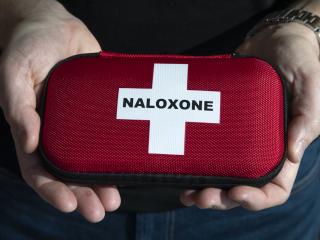Increased federal support to training organizations will save more lives
By Martin Gangnier, National CEO, St. John Ambulance.
St. John Ambulance is an international humanitarian organization established in Canada in 1883 with a mission to enable everyone to improve their health safety, and quality of life through training, education, resources, and service to the community.
Over the past few years, the terms crisis and epidemic have entered the Canadian vernacular through a succession of public health emergencies. As COVID-19’s impact lessens, another health crisis has steadily intensified: Canada’s opioid crisis.
For over a decade, frontline responders and communities across Canada have battled the opioid poisoning crisis. Health Canada reports there were over 36,000 opioid toxicity deaths between January 2016 and December 2022. In 2022, there were 7,328 deaths. Before the pandemic, the average number of opioid-related deaths per day across Canada was 10; today this number has doubled.
For Indigenous communities, the reality is often worse. Recent figures provided by the Confederacy of Treaty 6 First Nations in Alberta, show Indigenous peoples in Alberta are seven times more likely to die of opioid toxicity. Leaders report death rates have spiked since the province’s closure of safe consumption sites.
Behind each one of these numbers is the tragic story of a loved one. In some cases, they struggled with substance use and were too ashamed to speak up. For others, the treatment they needed was inaccessible.
These numbers also serve as an urgent call for governments, at every level, to examine how non-governmental organizations across the country are mobilizing to respond to the opioid crisis and save lives.
Community based training organizations, frontline groups and volunteers play an essential role in fighting this battle. They see the consequences of the opioid epidemic and how it’s affecting their communities daily.
Positive change starts by removing barriers to the information and resources that can directly improve the chances of surviving an opioid poisoning event.
To curb this public health crisis, provinces must prioritize sharing tools, training, and knowledge with all types of community organizations. This approach will save lives, and it starts with delivering free courses on how to respond to an opioid poisoning and administer nasal naloxone.
With the support of Health Canada’s Substance Use and Addictions Program (SUAP), St. John Ambulance provides training and low-barrier access to nasal naloxone to Canadians. Our role is to train and empower businesses and individuals to respond quickly and safely to opioid poisonings.
We can and must do more. While every level of government has a role in responding to the opioid crisis, the federal government is uniquely positioned to mobilize a national response. This would ensure all jurisdictions have access to the critical resources and information needed to save lives. By renewing funding to Health Canada’s SUAP, the federal government can increase its support to training organizations and enable more individuals to respond to opioid poisonings in their communities.
As of June 1, 2023, the Ontario government legislated that workplaces that are aware of, or reasonably should be aware of, an employee at risk of experiencing an opioid poisoning to have a naloxone kit accessible and someone on staff who has completed training. This means at least one employee in these businesses must be able to respond and administer nasal naloxone. This legislation is the first of its kind in North America and an important step to raising awareness for those using opioids, reducing stigma and saving lives.
This harm-reduction response is just one piece of a larger treatment strategy with proven success. Combined with rapid access to treatment and recovery, the evidence shows this is the most effective way to save lives, and help people fully recover from opioid dependencies.
Ontario’s progressive approach has not yet been adopted in other regions. Our hope is that the rest of Canada is watching and will move to adopt a similar, if not a broader approach.
To combat the opioid crisis, we need to increase the number of Canadians who are ready to save a life by making opioid response training and naloxone kits more accessible. The opioid crisis is complex, but saving lives will not be if regions across Canada focus on reducing stigma, building the capacity to rapidly respond to opioid poisonings, and facilitating access to treatment including nasal naloxone.
It’s a pivotal moment in this public health crisis. Renewed federal funding can support provinces and territories to follow Ontario’s lead. We know what it takes to help bring the opioid crisis under control, now it’s time for all of Canada to join the fight.
